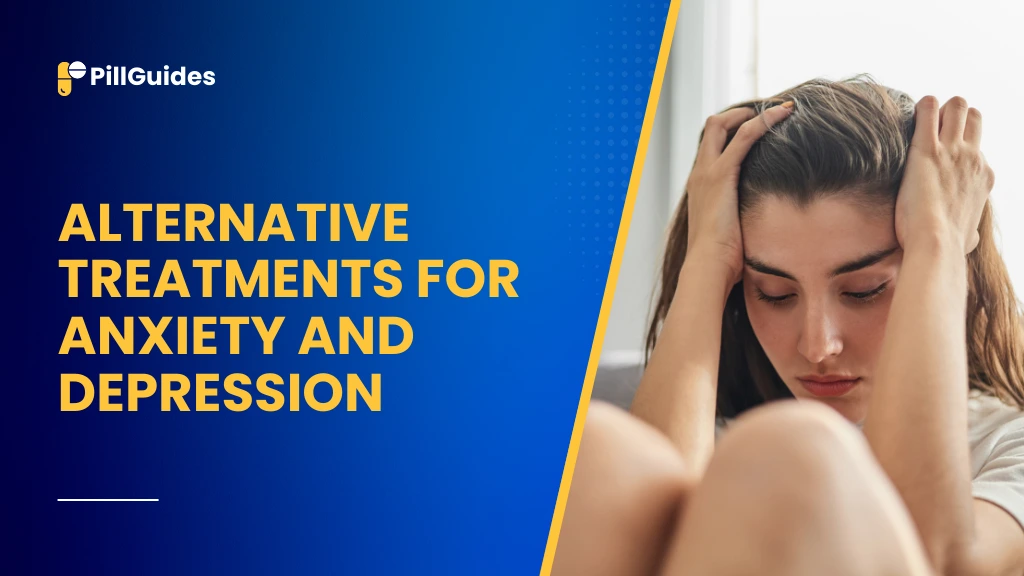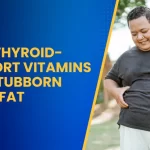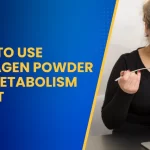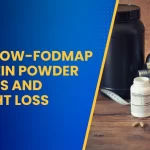When it comes to overcoming anxiety and depression many people mistakenly rely on traditional methods, like prescription medication or talk therapy. These treatments have worked for millions, but they aren’t all available. But more recently, people have been interested in alternative treatments for anxiety and depression that are natural and holistic means of mental health.
In this guide, you will learn about many effective, evidence-based alternatives to traditional methods that will replace or supplement traditional approaches based on your needs and preferences. With these strategies, you can turn the tide on your mental health.
Mindfulness and Meditation for Mental Clarity
Meditation is one of the most popular alternative treatments for anxiety and depression. Mindfulness is another. Living in the present moment is encouraged by these practices and as a result of these practices intrusive thoughts are lowered and feelings of stress and sadness are reduced.
Benefits of Mindfulness and Meditation:
- It calms the mind and reduces racing thoughts making it a great anxiety reducer.
- It helps regulate emotions, giving you a good sense of when things get stressful.
- Boosts productivity and increases focus on overall mental health.
How to Start:
- Learning the basics is possible using apps like Headspace and Calm.
- Meditate or deep breath for 10–20 minutes a day.
- Consider practices like mindfulness-based stress reduction (MBSR) or yoga.
Through mindfulness,, you will learn to integrate and apply these tools to reduce stress and anxiety in your daily life.
Exercise: A Natural Mood Booster
Physical activity is one of the best ways to fight anxiety and depression. During exercise, your body produces endorphins, otherwise known as ‘feel good’ hormones that help to elevate your mood and reduce stress.
Best Exercises for Mental Health:
- Cardio Workouts: Jogging, cycling, or dancing lifts your heart rate and releases tension.
- Yoga: A meditation practice of moving your body and putting your focus in the present.
- Strength Training: Physical strength building can also make you more mentally resilient.
Tips for Staying Active:
- Start small: Walk for 15 minutes a day.
- Accountability can come from group classes or a gym.
- Do things you like to do, so exercise doesn’t feel like a chore.
Gardening or stretching can have profound benefits on your mental health, even simple activities.
Exploring Herbal Remedies and Natural Supplements
For centuries, herbal remedies have been used to treat what ails you, most specifically mental health issues. Most people can deal with their anxiety and depression symptoms by using herbs and natural supplements.
Top Herbal Remedies for Anxiety and Depression:
- St. John’s Wort: This herb is known for its antidepressant properties and has been studied extensively to determine its effectiveness.
- Ashwagandha: An adaptogen that can reduce cortisol levels and help to ease stress.
- Chamomile: Tea is used to relax and help you sleep better.
- Lavender: Used often in aromatherapy to reduce anxiety and improve mood.
Safety Precautions:
- Consult a healthcare provider before taking herbal remedies, especially if you are on medication.
- Take small doses to make sure you don’t react badly.
When you look at these natural solutions, you can see if there is a complementary solution that will aid you in better mental health.
Nutrition and Mental Health: The Gut-Brain Connection
Hormones produced within your body are greatly influenced by what you put in your diet, and in turn, how you feel mentally and emotionally. It’s been found that a healthy gut can mean a healthy mind too. Foods that help keep your brain healthy can help relieve symptoms of anxiety and depression.
Foods That Support Mental Health:
- Omega-3 Fatty Acids: These improve brain function and mood and are found in fatty fish such as salmon and seeds such as flaxseed.
- Probiotics: Fermented foods like sauerkraut, kombucha, and kefir help support gut health, and keep it healthy, which, in turn, maintains mental well-being.
- Leafy Greens: Good sources of folate, a nutrient associated with lower depression risk, are vegetables like spinach and kale.
- Whole Grains: They also provide steady energy and help regulate serotonin levels.
Foods to Avoid:
- Sugary and unhealthy fat processed foods.
- Too much caffeine, which can make your anxiety even worse.
However, pairing a healthy diet with some of the other treatments that can be prescribed is another path to some improvements in the state of your mental health.
Emotional Healing Holistic Therapies
Along with herbal and nutritional changes, holistic therapies also include other means to help manage mental health naturally. The therapies focus on dealing with the whole body as well as the mind and spirit as a whole.
Popular Holistic Approaches:
- Acupuncture: It’s an ancient Chinese practice that focuses on certain pressure points that will help reduce stress and anxiety.
- Reiki: A Japanese energy healing technique focused on promoting emotional balance.
- Massage Therapy: It helps release physical tension and therefore this is good for mental stress.
- Art and Music Therapy: It’s a way of self-expression, an emotional outlet.
However, like traditional treatments, these therapies (and combinations thereof) also work well alongside each other, leading to a more holistic approach to mental health care.
Building a Support System
Good mental health depends on social connections. Although isolation can make people with anxiety and depression worse, having a strong support system is extremely important.
How to Strengthen Your Support System:
- There are local or online support groups you can join related to mental health.
- Talk to trusted friends and family about how you’re feeling.
- Meet people by participating in the community events as a volunteer.
If you surround yourself with positive and supportive people then you won’t feel so lonely on your journey to healing.
Cognitive Behavioral Therapy Alternatives
While Cognitive Behavioral Therapy (CBT) is a known way to heal anxiety and depression, there are alternative treatments that people may choose.
Alternatives to CBT:
- Dialectical Behavior Therapy (DBT): It is focused on mindfulness and emotional regulation.
- Eye Movement Desensitization and Reprocessing (EMDR): Used for traumatic anxiety.
- Narrative Therapy: Helps patients reframe personal stories to overcome mental health problems.
Each of these therapies works in its own, attractive way, and can be crafted to your own exact needs.
Conclusion
Managing anxiety and depression doesn’t always require medication. You can also address those mental health problems with alternative treatments, like mindfulness, exercise, dietary changes, and herbal remedies, using a natural, or holistic, approach.
No, there is no one-fits-all solution. It’s a case of trying various options, giving your body some breathing space, and eventually finding which balances you out the most. Self-care and caring for your support system is less something you should do, and more something you definitely must do.
Disclaimer
This article is for informational purposes only and is not a substitute for professional medical advice. Always consult a licensed healthcare provider before starting or changing any treatment for anxiety and depression.
Read More: Best Homeopathic Medicines for Skin Problems: Safe & Natural Healing
FAQs Alternative Treatments for Anxiety and Depression
1. Are there alternative treatments as good as medication?
Mild to moderate symptoms of anxiety and depression are often treated with alternate treatments. They may not replace medication for some cases of severe illness, however. What kind of advice should I consult a healthcare provider for?
2. How long does it take other treatments to work?
The timeline varies. Mindfulness and exercise, for example, can immediately relieve symptoms but only dietary changes and herbal remedies can take weeks to have noticeable effects.
3. Can I do alternative treatments in addition to traditional therapy?
Absolutely. Alternative treatments can be effectively used together with therapy and medication creating a holistic approach to mental health care.
4. Are herbal remedies entirely safe for everyone to take?
Some herbal remedies aren’t safe for everyone, and especially not for those on other medications. Be sure to consult with a doctor before taking any new supplement as anything could potentially harm you.
5. How do I know which treatment is right for me?
This will depend on your symptoms, preferences, and lifestyle. Try out a bunch of methods and check with a healthcare professional to see what works for you.










